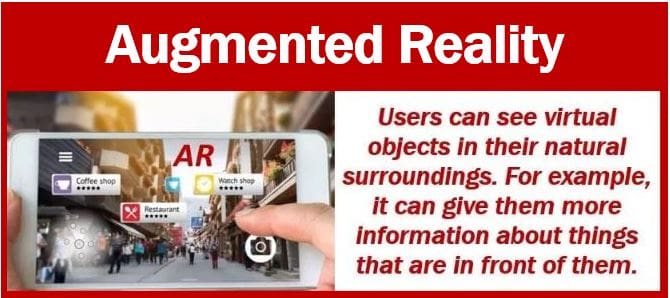
The modern markets are dictated by customers’ needs and desires. And as we continue improving digitally, these needs and desires change, so companies should keep up with these changes.
Augmented reality is a fast-rising trend in sales and marketing strategies. It allows businesses to give an exceptional customer experience to their clients conveniently by tapping into their mobile phones. Read this post to discover why you need to implement AR in your business today.
What is augmented reality?
Augmented reality, AR is an interactive user experience of the physical world where objects residing in the real world are improved by computer-aided perceptual information.
In short, it allows businesses to offer their customers an engaging, unique experience that incorporates virtual and real-life worlds. This trend can be applied in various ways, such as connected packaging or mobile apps.
Interesting AR statistics you need to know.
Still apprehensive about implementing augmented reality? Check the statistic below to help you make a comprehensive decision from the information obtained from instructor accounts.
- 72% of consumers make impulse purchases because of AR.
- 71% will shop frequently if they can access AR.
- 55% of shoppers say shopping through augmented reality is fun and interesting.
- 61% of consumers prefer shops with AR to those that don’t.
- 40% of clients will pay more for products if they can test them on AR.
As a lot of brands are increasingly adopting AR, these figures are bound to go up.
Benefits of augmented reality.
Having explained why you need to implement AR in your business, we have compiled the benefits you should expect in the following section.
Promote sales and purchases.
AR allows you to present products in customers’ hands without leaving their homes. From test driving a car to trying new make-up products, AR creates experiences that encourage purchase.
Offer branding experiences.
Some people indeed buy from a store because the store’s general appearance is good. Certainly, it is hard to do the same on a website. However, AR allows brands to customize their in-home experience for clients to get the feeling of being in a physical store.
Maintaining a viral loop through interactivity.
Besides producing high quality, the content generated by AR applications is fun and highly entertaining. The suspense achieved when sharing this content helps provide entertaining viewing by other users, compelling them to recreate and share their own versions, completing the viral loop. This is helpful for digital content marketing.
Creates competitive differentiation.
Differentiating your brand through AR offers a better competitive advantage regardless of your marketing focus, whether B2B or B2C sales.
Which person is customers most likely to respond to, one with a PowerPoint presentation and a brochure, or the one providing virtual 360-degrees analysis of their product? Obviously, the latter will get more responses. This is what AR does for your business.
Test new products.
According to the reports of The Harvard Business School, there are over 30 000 new products launched in the market each year. Unfortunately, 80% of them fail. With AR, you can assess products in the development stage and give appropriate feedback.
If you find negative feedback, you’ll avoid the charges of creating expensive first models for launching only for it to fail. If you get positive feedback, you get the go-ahead with mass production and changes that you may need to make.
Conclusion.
Augmented reality is a digital trend that has proved helpful past the entertainment and gaming industry. It provides practical solutions that can be used to generate and drive sales and create innovative marketing ideas.
Still apprehensive about implementing AR? These benefits should be enough to convince you; AR encourages sales, creates competitive differentiation, allow you to test new products, and ensure viral loop continuity.
Interesting Related Article: “Virtual and augmented reality & 7 industries face drastic disruption“

